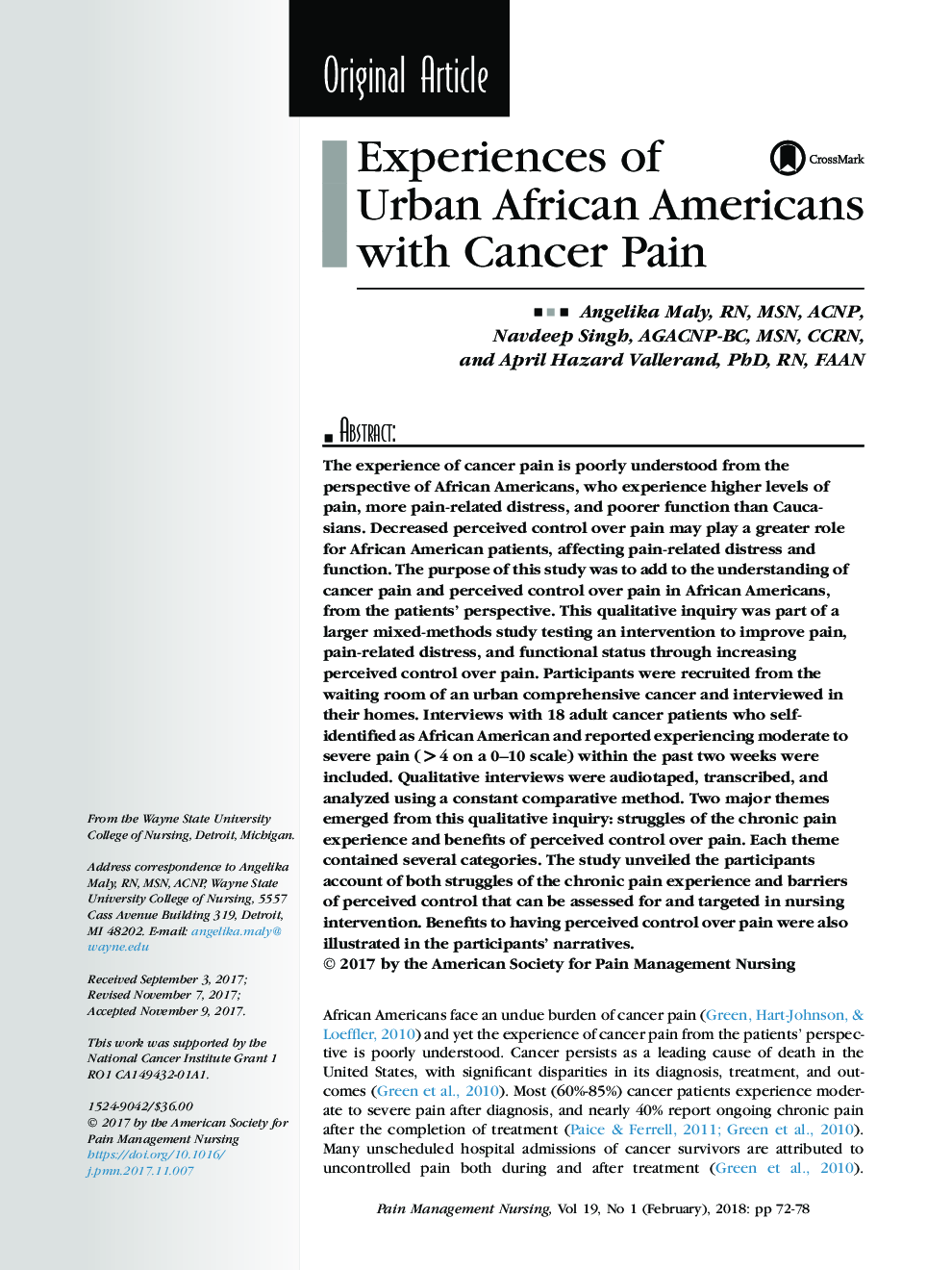| Article ID | Journal | Published Year | Pages | File Type |
|---|---|---|---|---|
| 8578946 | Pain Management Nursing | 2018 | 7 Pages |
Abstract
The experience of cancer pain is poorly understood from the perspective of African Americans, who experience higher levels of pain, more pain-related distress, and poorer function than Caucasians. Decreased perceived control over pain may play a greater role for African American patients, affecting pain-related distress and function. The purpose of this study was to add to the understanding of cancer pain and perceived control over pain in African Americans, from the patients' perspective. This qualitative inquiry was part of a larger mixed-methods study testing an intervention to improve pain, pain-related distress, and functional status through increasing perceived control over pain. Participants were recruited from the waiting room of an urban comprehensive cancer and interviewed in their homes. Interviews with 18 adult cancer patients who self-identified as African American and reported experiencing moderate to severe pain (>4 on a 0-10 scale) within the past two weeks were included. Qualitative interviews were audiotaped, transcribed, and analyzed using a constant comparative method. Two major themes emerged from this qualitative inquiry: struggles of the chronic pain experience and benefits of perceived control over pain. Each theme contained several categories. The study unveiled the participants account of both struggles of the chronic pain experience and barriers of perceived control that can be assessed for and targeted in nursing intervention. Benefits to having perceived control over pain were also illustrated in the participants' narratives.
Related Topics
Health Sciences
Medicine and Dentistry
Anesthesiology and Pain Medicine
Authors
Angelika RN, MSN, ACNP, Navdeep AGACNP-BC, MSN, CCRN, April Hazard PhD, RN, FAAN,
